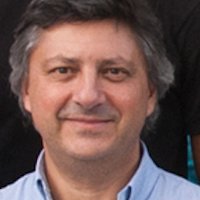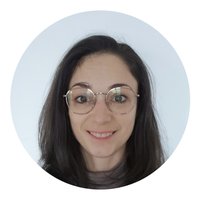Viruses and human cancers
- Duration: 9 weeks
- Effort: 30 hours
- Pace: ~3h15/week
- Languages: English and french
What you will learn
At the end of this course, you will be able to:
Describe the biology and the replicative cycle of several viruses associated with cancers.
Explain the direct and indirect mechanisms of tumorigenesis induced by these viruses and the role played by inflammation and by the immune system.
Understand the key role of prevention through vaccination and discover that cure of the viral infection does not always abolish the risk of associated cancer.
Description
About 20% of human cancers are induced by viruses, particularly in low/middle income countries, to a point that in some regions of the world, viral infection is the main etiology of human cancers. Our understanding of the relationship between viral infection and oncogenesis has considerably improved during the last two decades. As obligatory intracellular parasites, viruses encode proteins that reprogram host cellular signaling pathways that control proliferation, differentiation, cell death, genomic integrity, and recognition by the immune system. Both DNA and RNA viruses have been linked with human cancers.
Epstein-Barr virus, papillomaviruses, hepatitis B virus, human herpesvirus-8 and Merkel cell polyomavirus are the five DNA viruses that are capable of causing the development of human cancers. Human T lymphotrophic virus type 1 and hepatitis C virus are the two RNA viruses that contribute to human cancers. Treatment and prevention strategies critically depend on the double understanding of the mechanism of cell tumorigenesis and the way they are influenced by viruses.
During this MOOC, we will review the different mechanisms of virus induced carcinogenesis, from direct integration of the virus in the genome to non-specific inflammation and immune disorders. The epidemiology and specificity of each type of virus and of the induced tumor will then be given in detail. At the end we will report innovations in the prevention of virus induced tumors, either by vaccination or by appropriate treatment of the viral disease.
Format
This MOOC is composed of 6 teaching chapters. Each chapter has 4 to 6 sequences. Each sequence consists of a video of about 10 minutes and some MCQs so that students can test their knowledge. The videos are in English with French and English subtitles.
Want to stay informed? Follow us on LinkedIn, Bluesky and YouTube to discover all our events.
Prerequisites
This MOOC is open to anyone interested in cancer-associated viruses, with a good scientific background. A bachelor's degree in the sciences is recommended.
Required Equipment
You will need a computer with a browser and sound, as well as a sufficient internet connection to follow the MOOC. The use of a camera is compulsory for the examination.
Assessment and certification
To follow this course, you can choose between two options:
- The Discovery Course gives access to videos, quizzes and discussions in the forum. No badge is issued for this course. Registration is free.
- The Qualifying Course leads to a certificate. In addition to the activities of the Discovery Course, you will have to take a one-hour supervised distance learning exam, consisting of 30 multiple-choice questions (MCQs) and obtaining 18 correct answers. The registration fee for the Qualifying Course is 150€.
Successful completion of the Qualifying Course gives you the opportunity to apply for the Institut Pasteur Online Diploma of Infectious Diseases (DNM2IP), which consists of 5 certificates to Institut Pasteur MOOCs on infectious diseases. To learn more, visit the Institut Pasteur's web page dedicated to this diploma.
Accessibility
The videos in the MOOC are all subtitled, in both English and French. Their playback speed can be accelerated or slowed down to suit your needs.
The subtitles are also grouped together in a text format for each video: these are the transcripts, accessible under each video.
Finally, more and more MOOCs also include what we call the BOOC. This is a PDF document containing all the transcripts, to which images and diagrams have been added to aid understanding. The BOOC can be downloaded.
Course plan
- C1.1 : Introduction / Christian Bréchot (Institut Pasteur)
- C1.2 : Mechanisms of viral oncogenesis / Jean-Christophe Pagès (EFS, Tours)
- C1.3 : Mechanisms of Oncogenesis, Pathogenesis and Immune Evasion / Philippe Afonso (Institut Pasteur)
- C1.4 : Human oncogenic viruses and centrosomes / Chloé Journo (ENS, Lyon)
- C1.5 : Integration of viruses and cancers / Francesca di Nunzio (Institut Pasteur)
- C2.1 : Inflammation and cancer / Angela Santoni (Institut Pasteur, Roma)
- C2.2 : Viruses, immunity and cancers / Daniel Scott-Algara (Institut Pasteur)
- C2.3 : Viral stress, mutations and cancers / JP Vartanian (Institut Pasteur)
- C2.4 : Interactome, viruses and cancer / Yves Jacob (Institut Pasteur)
- C3.1 : Epidemiology of HTLV1 / Antoine Gessain (Institut Pasteur)
- C3.2 : Viral oncogenesis as a subversion of viral multiplication / Renaud Mahieux (ENS Lyon)
- C3.3 : Mechanisms of Mother to Child transmission of the oncogenic virus HTLV-1 through breastfeeding / Pierre-Emmanuel Ceccaldi (Institut Pasteur)
- C3.4 : Endogenous retroviruses / David Ribet (Inserm Rouen)
- C4.1 : Epidemiology of human papillomavirus / Antoine Touzé (University of Tours)
- C4.2 : Human papillomavirus infection and disease / John Doorbar (University of Cambridge, UK)
- C4.3 : Oncogenic human papillomaviruses / John Doorbar (University of Cambridge, UK)
- C4.4 : Trends on vaccination against papillomavirus / Hélène Péré (APHP, Université Paris-Cité)
- C4.5 : Merkel polyomavirus / Hélène Laude (Institut Pasteur)
- C5.1 : Epidemiology of HVB/HCV related HCC / Pierre Nahon (Université Sorbonne Paris Nord, Hôpital Avicenne)
- C5.2 : Mechanisms of HBV/HCV-induced HCC / Pascal Pineau (Institut Pasteur)
- C5.3 : HBV-HCV/HIV related HCC / Jean-Charles Duclos-Vallée (Université Paris-Saclay, Hôpital Paul-Brousse, APHP)
- C5.4 : Universal hepatitis B vaccination: a way to eliminate hepatocellular carcinoma? / Marie-Louise Michel (Institut Pasteur)
- C5.5 : Surveillance of HCC in patients with sustained viral C response to DAA / Joachim Lupberger (Université de Strasbourg)
- Optional - C5.6 : Modeling hepatitis virus infections and treatment strategies in humanized mice / Hélène Strick-Marchand (Institut Pasteur)
- C6.1 : Oncogenic gamma-herpesviruses / Anna-Teresa Palamara (La Sapienza University of Rome, It)
- C6.2 : Herpesviruses, general introduction / Bernard Mariamé (ITAV Grenoble)
- C6.3 : Epidemiology of HHV8 / Antoine Gessain (Institut Pasteur)
- C6.4 : Kaposi’s Sarcoma and HHV8 / Roberta Santarelli (La Sapienza University of Rome, It)
Course team
Jean-Pierre Vartanian
Categories
Laurie Pinaud
Categories
Organizations
License
License for the course content

Attribution-NonCommercial-NoDerivatives
You are free to:
- Share — copy and redistribute the material in any medium or format
Under the following terms:
- Attribution — You must give appropriate credit, provide a link to the license, and indicate if changes were made. You may do so in any reasonable manner, but not in any way that suggests the licensor endorses you or your use.
- NonCommercial — You may not use the material for commercial purposes.
- NoDerivatives — If you remix, transform, or build upon the material, you may not distribute the modified material.
License for the content created by course participants

All rights reserved
"All rights reserved" is a copyright formality indicating that the copyright holder reserves, or holds for its own use, all the rights provided by copyright law.





